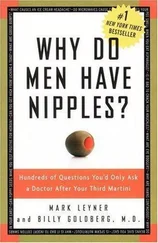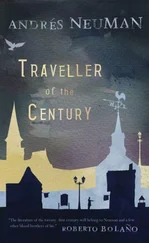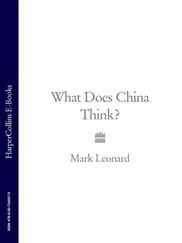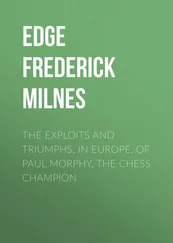That is why Europe’s epic escape from history was guided not by the larger-than-life heroes of the war – people like Churchill or De Gaulle, who inspired a generation to fight – but by a group of almost anonymous technocrats who were dedicated to taking the gun out of Europe’s future. The key figure was Jean Monnet, a small, unprepossessing, stocky French official, who reminded the journalist Anthony Sampson unavoidably of Agatha Christie’s Hercule Poirot.
Monnet’s contribution was a vision of how not to have a vision. He took Valéry’s observation and turned it into a dictum for the organization of Europe. He let the fear of conflict drive European unity and left its goal vague, allowing everyone to feel that Europe was going their way. To this day, Europe is a journey with no final destination, a political system that shies away from the grand plans and concrete certainties that define American politics. Its lack of vision is the key to its strength.
Monnet’s first principle was to avoid blueprints. The ‘Schuman Declaration’, which the French and the Germans signed to launch the European project in 1950, makes the lack of plans a cardinal principle: ‘Europe will not be made all at once, or according to a single general plan. It will be built through concrete achievements, which first create a de facto solidarity.’ 3 Monnet had worked in the disastrous League of Nations after the First World War and understood the need to start with concrete forms of co-operation rather than an illusory idea of the international community. He tried to bind France and Germany together by uniting the production of coal and steel: the industries that had built the weapons of war would now provide the foundations for peace. Monnet’s tactic was always to focus on technical details rather than the big political questions that attract headlines. He tried to tackle contentious issues by breaking them down into component parts – it is a lot easier to get agreement on coal and steel tariffs than war and peace. And once the governments of France and Germany were sucked into endless negotiations, they were less likely to go to war.
The best way to change the facts on the ground was through gradual change – what Monnet called engrenage. Each agreement to co-operate at a European level would lead inexorably to another agreement that deepened European integration. Once Europe’s leaders had agreed to remove tariffs, they focused on non-tariff barriers such as regulations, health and safety standards, and qualifications. When many of the non-tariff barriers had been addressed by the creation of a single market, Europe’s leaders focused on the single currency. Wider and wider groups of politicians and civil servants now had a stake in European integration. Thousands of meetings took place between officials from different governments, which meant, quite simply, that they got to know each other very well. They would therefore think spontaneously of other things they could do together.
Monnet’s bizarre working practices set a pattern that the European Union’s workings would follow. Stanley Cleveland, one of Monnet’s disciples, describes his method:
Whenever Monnet attacked a new problem he would gather a bunch of people around him…He would begin a sort of non-stop Kaffeeklatsch. It could go on sometimes for a period of one or two weeks – hours and hours a day…Monnet would remain silent, occasionally provoking reaction, but not saying much…Then gradually, as the conversation developed – and it often took several days or even a week before this happened – he began venturing a little statement of his own. 4
Monnet would start with a very simple statement, almost a slogan, to see how his companions reacted. He would then expose a little more of his thinking, turning the slogan into a few sentences and then a couple of paragraphs. As his companions objected and told him what was wrong with what he said, he would reformulate his ideas until they were acceptable to everyone in the discussion. Monnet would produce up to thirty drafts of a memorandum, speech, or proposal. The purpose of this constant iteration is identical with the purpose of the EU’s current never-ending process of policy formulation, negotiation, and review: to remove any and all conflicts or obstacles around an issue. The product would be an outward simplicity for a complex idea.
What Monnet created was a machine of political alchemy. Each country would follow its national interest, but once the different national interests were put into the black box of European integration, a European project would emerge at the other end. For the Benelux countries, the Second World War had drastically exposed their vulnerability to the big powers in Europe, so they needed to find a way of reining in France and Germany; but also, as small European powers, their only real prospect of exercising influence was through some kind of unified inter-state system. For Germany, and also to an extent Italy, the major goal was political rehabilitation from their position as pariah states. Membership of a European community also represented a buttress against the threat from the East, and an opportunity to get rid of the allied market restrictions that prevented the necessary access to markets for Germany to rebuild. For France, German containment was the key goal, backed up by the prospects for economic growth which access to German markets and productive capacity offered – what Jacques Delors described as the marriage contract on which the EEC was founded. 5
All of these were calculations of national interest, and yet the outcome of their filtering through Monnet’s European institutions was a solution to the problem of European conflict. 6 In Europe today, war is not simply undesirable – it is inconceivable. The founder of liberal economics, Adam Smith, developed the evocative idea of the ‘invisible hand’ of the market to explain how a system of perfect liberty, operating under the drives and constraint of human nature and intelligently designed institutions, would give rise to an orderly society rather than a ‘war of all against all’. 7 In many ways, Monnet’s genius was to develop a ‘European invisible hand’ that allows an orderly European society to emerge from each country’s national interest. 8 And that is possibly the most powerful element of Monnet’s vision: he did not try to abolish the nation-state or nationalism – simply to change its nature by pooling sovereignty.
Europe has been able to extend itself into the lives of Europeans largely unchallenged by seeping into the existing structure of national life, leaving national institutions outwardly intact but inwardly transformed. The ‘Europeanization’ of national political life has largely gone on behind the scenes, but its very invisibility has seen the triumph of a unique political experiment.
The Invisible Political System
The Palace of Westminster, London. It is 11.30 a.m. on a Thursday and the Secretary of State for Agriculture, Margaret Beckett, is preparing to take questions – just as her predecessors have done for three hundred years. The daily prayers have been said and MPs are settling down on their green benches – behind the sword-lines that were originally introduced to stop the opposing front benches from stabbing each other while they spoke. The MPs are tired and anxious to get off to their constituencies so the chorus of ‘Hear, Hear’ and the waving of order papers is even louder than usual.
Although the trappings of ‘Question Time’ have not changed in centuries, this façade of continuity hides the fact that over half of British agricultural legislation is made to implement decisions taken by our ministers in Brussels. 9 Although the House of Commons can hold Margaret Beckett to account, the key decisions are not made by her alone. Instead they are made in negotiations with her counterparts in gatherings of European agriculture ministers and the various technical committees that meet between three and four hundred times a year. 10 But for a visitor to the House of Commons, or even a British farmer, nothing has changed because the policies are not implemented or ratified at a European level. The farmer will continue to deal with the national Ministry of Agriculture, the national customs and excise authorities, the national vets and health and safety executives who have become the custodians of European policy.
Читать дальше
